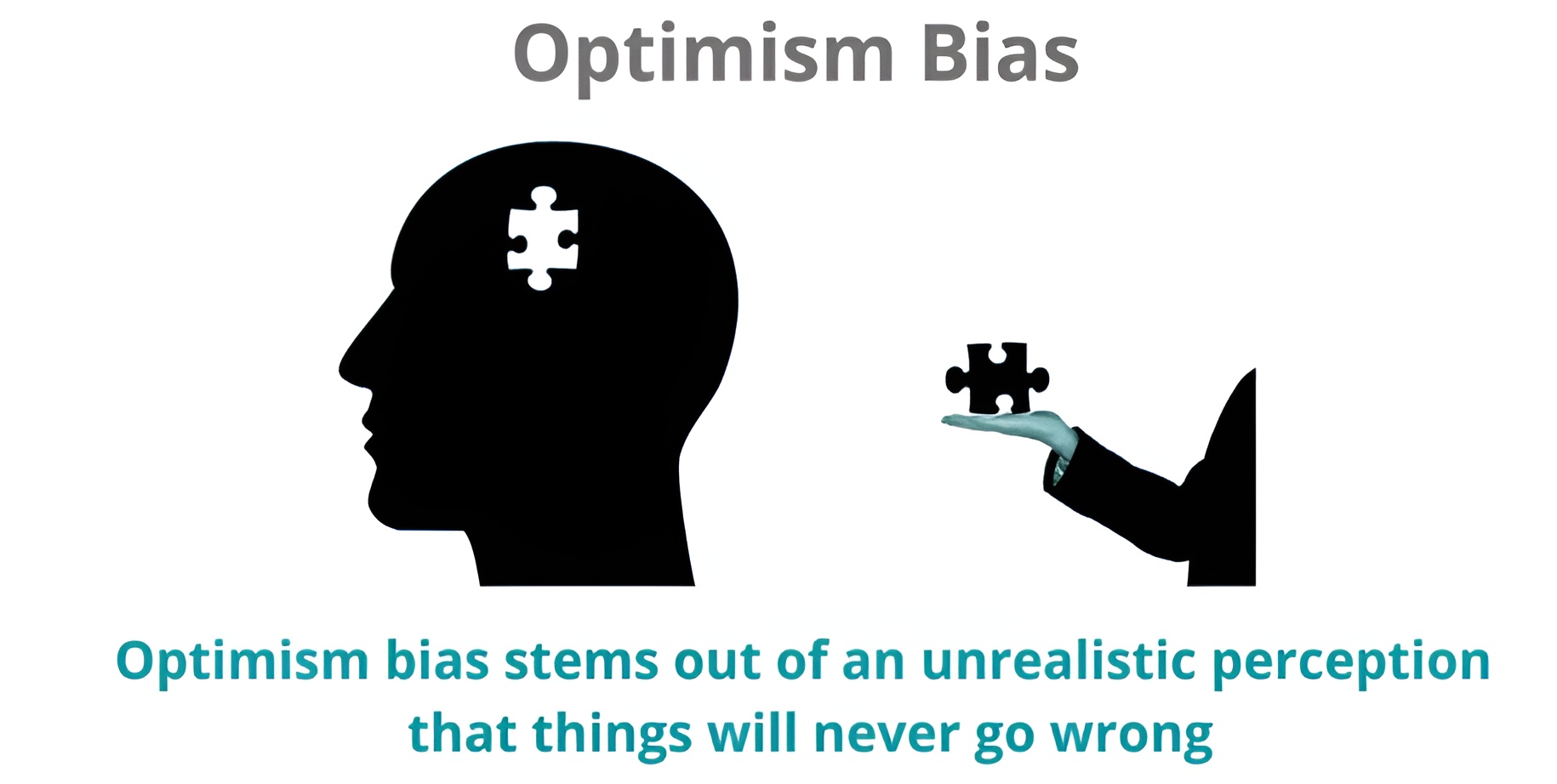Optimism bias is a cognitive bias that leads individuals to underestimate the likelihood of negative events happening to them and to overestimate the likelihood of positive events occurring. Essentially, people tend to be overly optimistic about their future, believing that they are less likely to experience hardships and more likely to enjoy positive outcomes compared to others.
Explanations:
Optimism bias is rooted in our innate desire for positive thinking and the maintenance of a positive self-image. People tend to believe that they are exceptional and that positive events are more likely to happen to them.
Examples:
Health and Well-Being: Many people believe that they are less likely to experience health problems, accidents, or negative life events compared to the general population.
Financial Success: Individuals may overestimate their prospects for financial success, believing that they are less likely to face financial difficulties or debt.
Relationships: People often assume that their relationships will be more harmonious and less prone to conflicts and breakups compared to others.
Solutions:
Realistic Risk Assessment: When considering future events, make an effort to objectively assess the likelihood of both positive and negative outcomes. Avoid overly optimistic or pessimistic thinking.
Consideration of Statistics: Familiarize yourself with relevant statistics and probabilities. Understanding the actual risks involved in various situations can help you make more informed decisions.
Contingency Planning: While staying optimistic, it’s prudent to have contingency plans or strategies in place for potential setbacks or adverse events.
Feedback and Reality Checks: Seek input from trusted friends, family, or mentors who can provide an objective perspective on your goals and plans.
Addressing optimism bias involves striking a balance between maintaining a positive outlook and acknowledging the real risks and uncertainties in life. This can lead to more prudent decision-making and preparedness for potential challenges.
